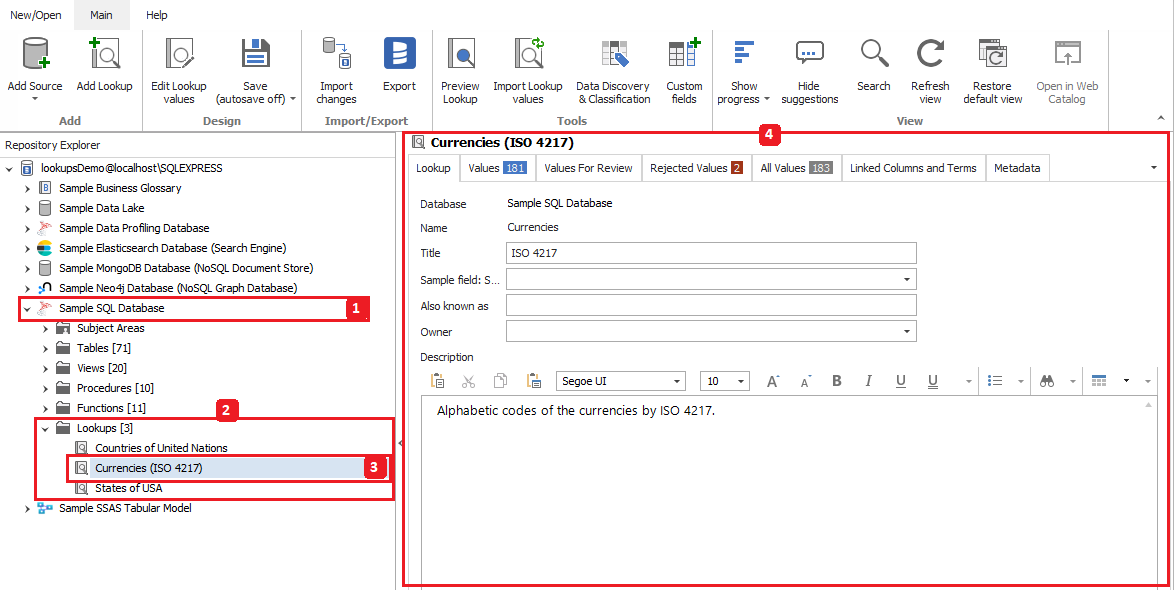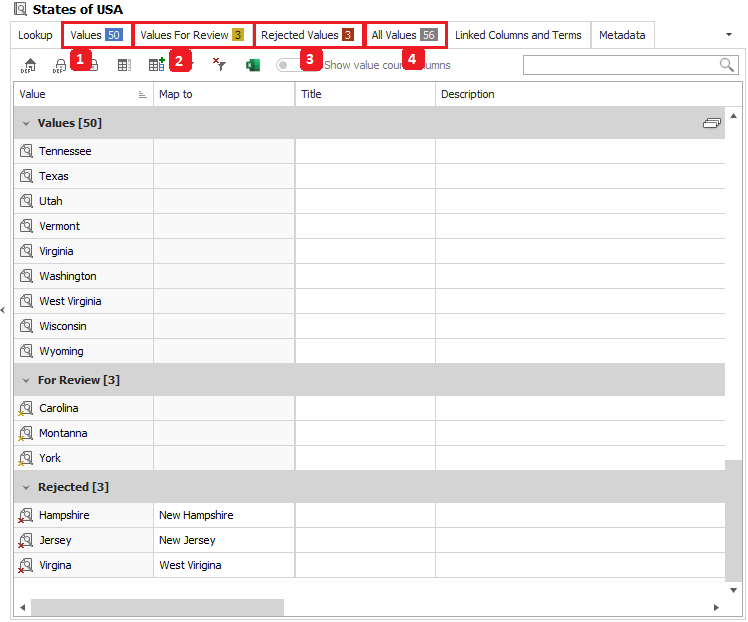Introduction
Reference Data was first introduced in Dataedo 10.4. It is otherwise known as lookups, dictionaries, enums, values, and codes. It allows for:
- describing values existing in columns - Dataedo will show you what values can be found in linked columns and what they mean
- showing possible values for your Business Glossary term - besides the usual term definition you will get possible values that represent that term in your data
Good to know:
- Lookups exist on the Database Level. If you wish, you can create a Manual Database to store your lookups in a single place.
- Wherever you would like to keep them, you can use lookups in every database documentation in your repository.
- Each column can be linked to one Lookup, but one Lookup may have links to many columns.
Lookup View
The folder with Lookups (2) is stored in Database (1) documentation. Selecting any Lookup (Currencies in example (3)) will display its details view (4).

Lookup Values
Lookup Values are divided into 3 different logical groups represented by individual tabs:
- Values (1) - values that were added manually by the editor and values loaded from columns linked to Lookup that was accepted by the editor.
- Values For Review (2) – values fetched from linked columns that need to be reviewed and accepted first. These values are not considered in exporting and searching.
- Rejected Values (3) – values marked as invalid. Rejected values go with Map to parameter which is a suggestion what is the correct value of the rejected one. These values are not considered in exporting.
- Tab All Values (4) accumulate all values from groups listed above in one place.
Dataedo will not modify data in your source database automatically. Values stored in Dataedo are for informational purposes only.

Support
Lookups are supported in the database repository. They are not available for the file repository.











 Marcin Zlotek
Marcin Zlotek